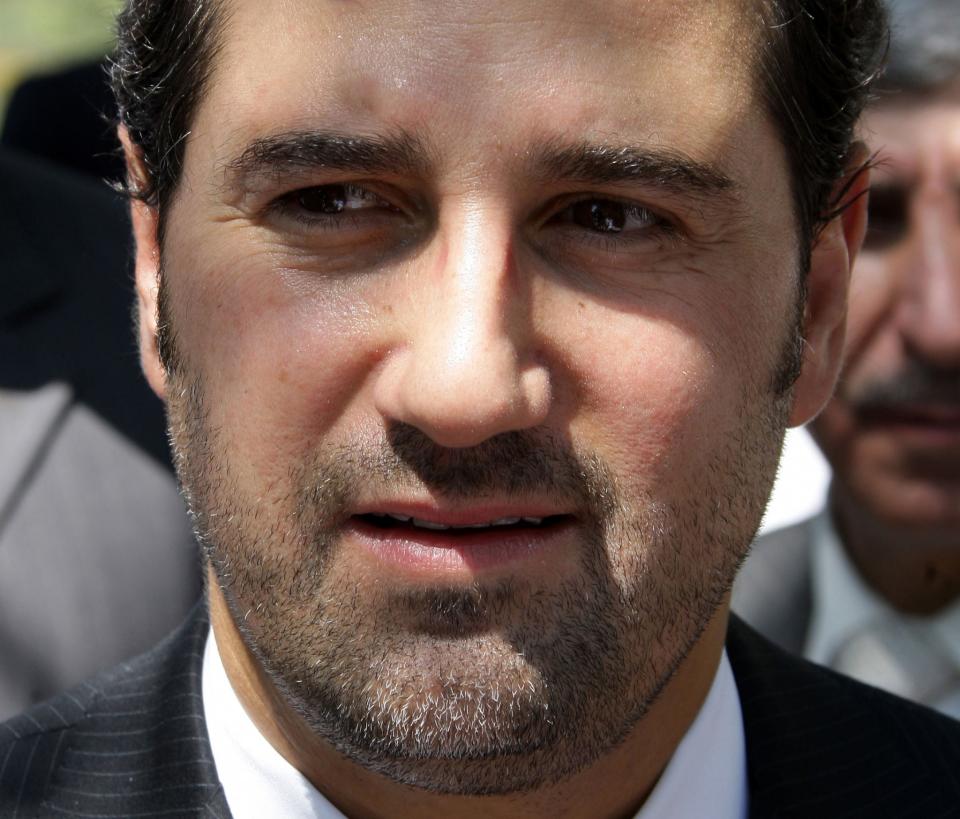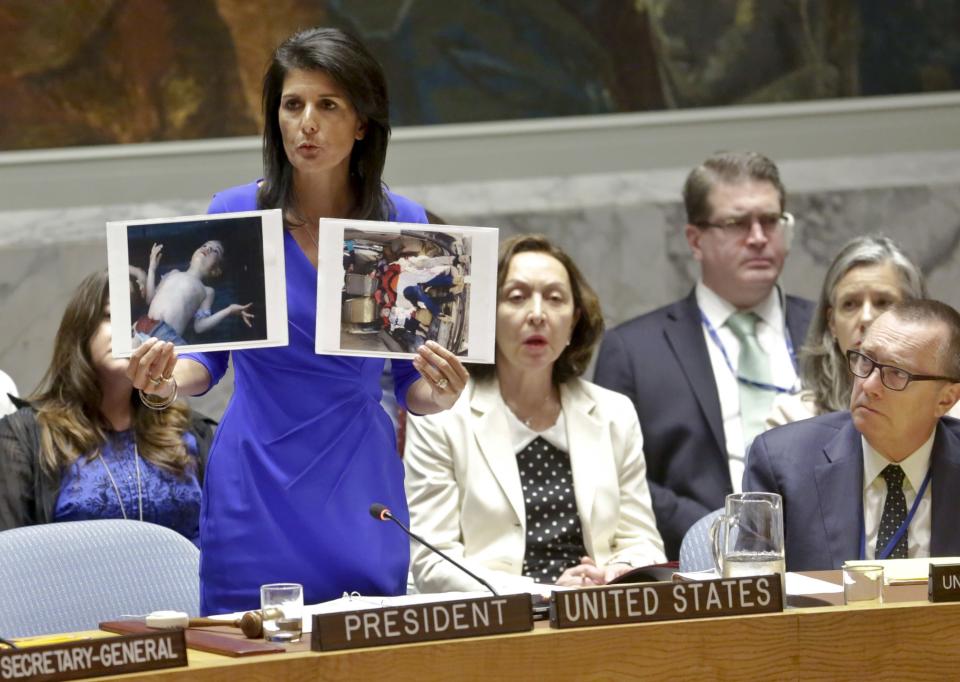Washington sets new sanctions on Syria regime

The Trump administration ratcheted up the pressure on the Syrian government of Bashar Assad Tuesday, targeting five individuals — including at least two members Assad’s own family — for financial sanctions in response to his government’s “continuing violent attacks” on its own citizens.
The action reinforces what appears to be a major shift in U.S. policy, at least rhetorically, towards Assad — a close ally of Russian president Vladimir Putin. It comes the day after the State Department accused the Assad regime of building crematoriums to burn the bodies of tortured prisoners, and White House press secretary Sean Spicer all but announced that U.S. policy is now to remove Assad. Spicer told reporters: “Syria will never be stable and secure as long as Assad is in power.”
“The Syrian government’s relentless attacks on civilians have continued unabated,” said John E. Smith, director of the Treasury Department’s Office of Financial Assets Control, in announcing the new sanctions. “As long as the Syrian government continues its campaign of brutal violence against its own people, Treasury will continue targeting the finances of anyone enabling Assad, and will continue intensifying pressure on Assad’s regime in support of diplomatic efforts to end the conflict in Syria.”
The new sanctions, which would result in the freezing of bank accounts and other assets that can be identified in the U.S. or allied countries, target several members of the family of Rami Makhlouf, a billionaire cousin of Assad. Also sanctioned were several Syrian entities, including the Scientific Studies and Research Center, which the U.S. believes is responsible for “developing and producing” Syria’s chemical weapons, according to the Treasury release.
Makhlouf, who was first sanctioned himself by the U.S. Treasury Department in 2008, is Syria’s wealthiest businessman, who owns huge chunks of the country’s main mobile phone company, its oil industry and a television network, among other properties — in large part through hidden overseas accounts in the British Virgin Islands, Panama and elsewhere, according to multiple media reports.
The secretive Makhlouf is also a stalwart defender of his cousin’s government, once telling the New York Times in an interview after the start of the Arab Spring protests that rocked the country in 2011, the regime would “fight until the end.”

The new sanctions announced Tuesday are aimed at Makhlouf’s vast financial empire: Among those newly targeted are Muhammad Abbas, described as a maternal cousin of Makhlouf who “carries out his financial interests,” including using a private Damacus-based company, Ajnihah, and a Lebanon “front company,” Barly Off-Shore, to move Makhlouf’s assets outside of Syria. (Ajnihah and Barly Off-Shore were separately sanctioned.)
In addition, Treasury targeted the assets of an entity called “Al-Bustan Charity,” and its director, Samir Darwish; Makhlouf has used the charity to create a “vast private network of militias and security-linked institutions … to support and augment Syrian military forces,” according to the Treasury release.
Others sanctioned include two of Assad’s other cousins, Makhlouf’s brothers Ihab Makhlouf, vice president of Syria’s mobile phone company Syriatel (owned by Rami Maklouf) and Ivad Makhlouf, who helps the Syrian regime evade international sanctions, Treasury said.
What is striking about the new actions is that they are aimed at one of Russia’s main allies at a time when the White House is taking increasing fire over its ties to Moscow, including this week’s allegations that President Trump disclosed sensitive “code word” intelligence to Russian Foreign Minister Sergey Lavrov during a meeting at the White House last week. It also appears to represent a sharp shift from Trump’s position in the campaign when he attacked Hillary Clinton for wanting to engage in a confrontation with Syria that “could lead to World War III.”
“Now she wants to start a shooting war in Syria in conflict with nuclear-armed Russia. Frankly, it could lead to World War III, and she has no sense,” he said at a rally in Miami on Nov. 2.
As recently as six weeks ago, U.N. Ambassador Nikki Haley told reporters “our priority is no longer to sit there and focus on getting Assad out” — a stance in line with the one Trump took the campaign.

But Assad’s use of poison gas, which was met by retaliation with Tomahawk cruise missiles, seems to have precipitated a shift that, if anything, became much more noticeable this week. During his briefing Monday, Spicer said the U.S. “remains open to working together with both Russia and Iran to find solution that leads to a stable and united Syria.” That, however, requires both countries to “acknowledge the atrocities of the Assad regime.”
To be sure, the White House has said nothing about using U.S. military power to remove Assad. So far, the new policy of demanding the Syrian dictator’s removal is mostly words, said Aaron David Miller, a Mideast expert at the Wilson Center. “I don’t see how they plan to put the pieces together to translate their aspirational policy into action.”
_____
Read more from Yahoo News:


